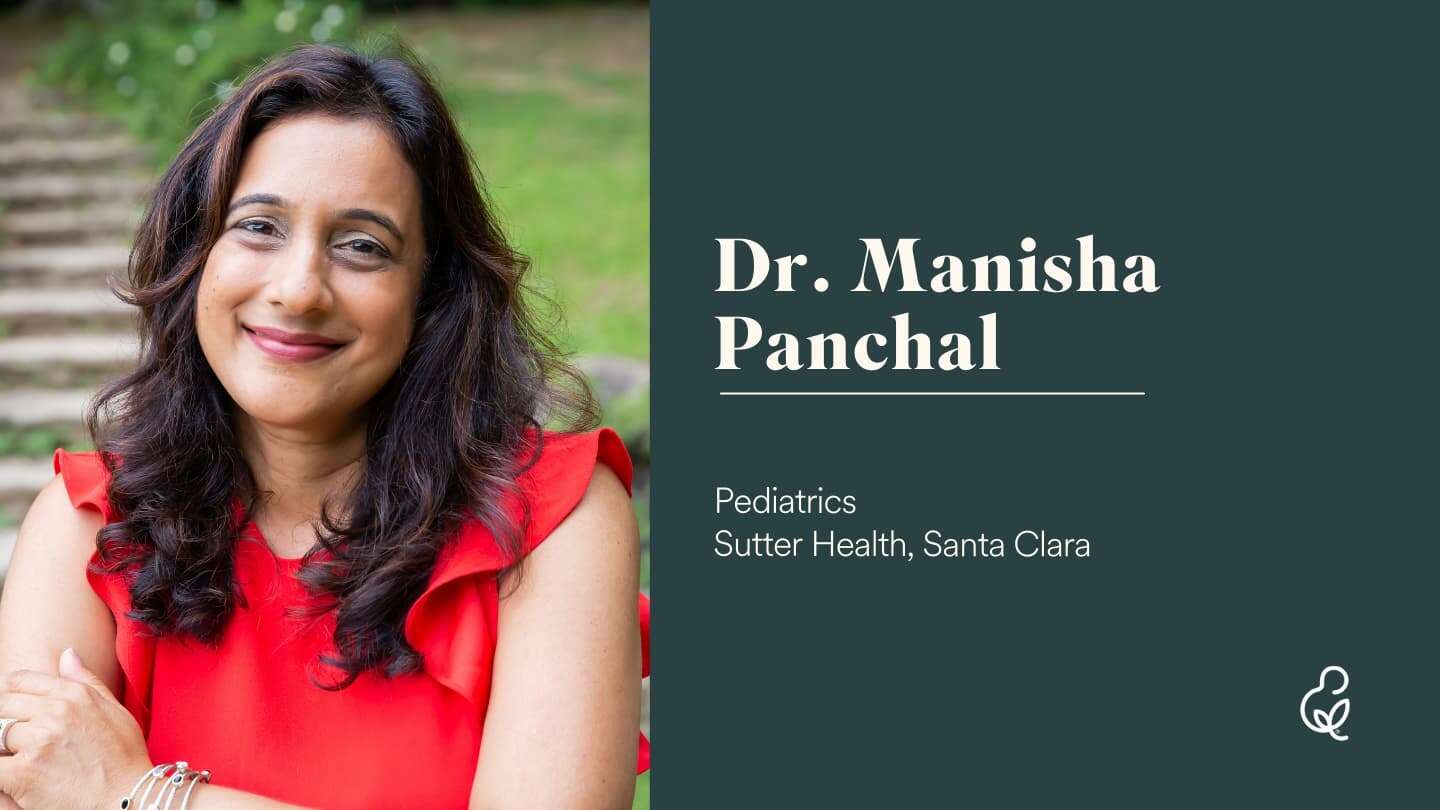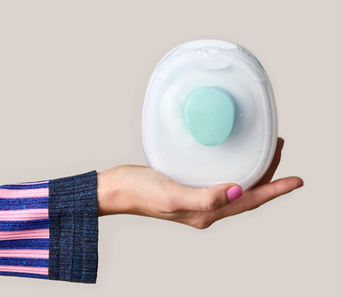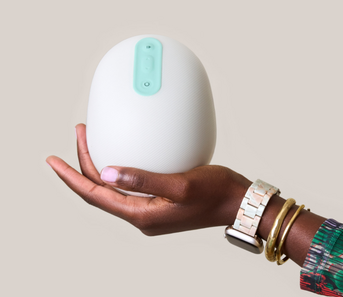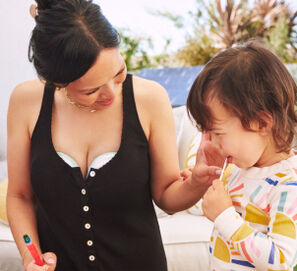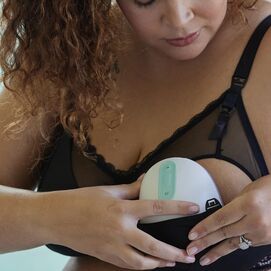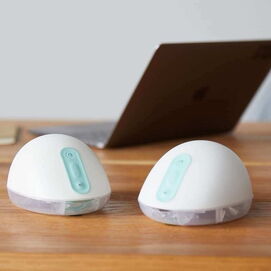At Willow, we are so lucky to not only have a community of amazing moms and women (that would be you!) to inspire us, but also expert Scientific Advisors to guide us. We lean on them for all things breastfeeding, pumping, maternal health and more, and if we do say so ourselves, they’re an incredibly inspiring group of humans who make us want to work even harder to bring solutions and support to all of our moms. Meet Dr. Manisha Panchal! A practicing clinician in the heart of Silicon Valley. She values educating parents on how to provide optimal health for their child and uses evidence-based medicine in treating children, while emphasizing preventative care. She is passionate about raising awareness of health care issues and has given talks and lectures on parenting and children’s health issues in the community. She has also worked to educate industry professionals in the area of childhood nutrition. Here’s a little bit more about her:
| Q: |
Please tell us a little bit about your background and area of expertise. |
I am a practicing pediatrician in the San Francisco Bay area with a commitment to making a positive impact on the health of my community. My approach has extended beyond daily patient care to educating patients and their families. Through extensive training and experience, I have developed expertise in infant nutrition and child development which I practice using a holistic integrative model. Furthermore, I have introduced innovative patient-centered programs within my practice such as interactive lecture series covering topics that range from nutrition from newborns to starting solids and picky eating in toddlers, parenting, and travel related health information such as vaccines. I am an international lecturer on newborn nutrition, benefits and science around breastmilk and formula, infant development and pediatric malnutrition.
| Q: |
What inspired you to enter this space? |
I was first attracted to the study of medicine as a child. I knew that I wanted to help people and become a healer in the community. To this day, my core purpose lives on . I am still attracted to helping people on a daily basis, to guide them through their healing process, and to be an advocate for them to pursue healthier lives.
| Q: |
Tell us how you really feel about early motherhood… |
Early motherhood is the start of a new beautiful rewarding journey in the chapter of a woman's life. We are willing to do anything for our newborns and endure significant hardships to make everything easier for our babies. Many moms hold on to the notion of being “supermom” trying to do so much, so early and so fast. Being a new mom is not about being perfect, but about learning on the job, making mistakes and figuring out what works well for the family unit. My greatest teachers have been my own two children. They have taught me the importance of patience, understanding, and the true meaning of unconditional love. They inspired me to co-author a book: “ Motherhood: A Guide to Surviving the First 30 days,” to help moms manage early motherhood.
| Q: |
What are some of the biggest issues facing breastfeeding moms today and how do you see that changing in the next 5-10 years? |
The current most pressing issue that new breastfeeding mothers are facing today is parenting during a time of loneliness and isolation brought about by the pandemic. As new mothers enter a new phase in life, it can make a difference for her to have social and emotional support with friends and family in addition to her spouse/partner. This support can enable her to gain energy and to spend time breastfeeding. This issue has highlighted the importance of providing information and resources remotely to support breastfeeding mothers so that they feel empowered to be able to breastfeed even during difficult situations. In the next decade, healthcare will continue to advance to provide more virtual visits with providers including lactation consultants, online tutorials, and advances in information technology and breast pump technology which will benefit breastfeeding mothers. With new work life balance challenges, mothers will have to continue to come up with innovative techniques and creative scheduling to continue to be able to breastfeed directly and/or offer pumped breastmilk to their babies in order to provide the best nutrition to our next generation.
| Q: |
If there’s one thing you’d like readers to take away from this interview, what would it be? |
Breastfeeding can be a challenging and rewarding experience and a time of mixed emotions. Remember, you are not alone and the only one feeling this way. All mothers are faced with a variety of emotions on this breastfeeding journey. One of the important things to remember is taking care of you! We all know the mantra, “breast is best,” but we cannot provide the best unless we take care of ourselves. Sleep deprived mothers are usually stretched thin especially during the newborn period. It is important to practice acts of kindness to yourself and have your own emotional fortifications in place so that you are not providing care on an empty tank. Adequate nutrition, sleep, exercise and activities that provide meaning and rejuvenation such as meditation, prayer, nature walks, listening or playing music are not luxuries, they are essential to well-being. Small practices that don’t take too much time such as keeping a gratitude journal, deep breathing and moments of mindfulness can help you weave moments of wellness into your day. When you are more relaxed and have positive feelings towards breastfeeding, naturally your milk flows better, your baby is less fussy and the breastfeeding experience is enjoyable and comforting to both you and your baby. Self-compassion and self-care can seem hard to justify at times, but will help you to be the best mother you can be.
| Q: |
Did you/ have you breastfed? What was your experience like? What tips do you have for new moms? |
Yes, I breastfed both my children (now ages 15 years and 12 years). They both breastfed for approximately 15 months. I truly enjoyed the togetherness that breastfeeding them brought us. It is a special bond that I shared with them and will always cherish. What I was most amazed about, was how the breastfeeding experience can be so different with each child. One would think... "I am breastfeeding each one of my babies;" however, in reality, each breastfeeding experience can be quite different. My son yearned for each breastfeeding session and was soothed with the bonding experience to the point that he stopped taking the bottle (an interesting challenge for a full time working mother, which we overcame together.) My daughter, on the other hand, was very matter of fact about each breastfeeding session. From the day she was born and as we weaned breastfeeding together, for her it was a matter of getting the nutrition she needed from feed to feed. This experience taught me the importance of approaching each child and breastfeeding experience uniquely and with a fresh lens. As I give advice and coach breastfeeding mothers, I take into account the differences of each mother and baby pair to determine the best plan for them to have a successful and rewarding breastfeeding experience.
Feeding our baby is one of the most important things we do as new mothers. Watching a newborn develop the look of sleepy contentment associated with having a full belly, fills us with a sense of well being, too. On the other hand, struggles with feeding can be especially anxiety provoking. If we learn to adjust our techniques, breastfeeding can be less stressful and more enjoyable and satisfying.
Breastfeeding is learned, not entirely innate. Both mother and baby are learning to feed. Mothers have to pick up on the feeding cues of the baby to help teach the baby how to feed. To help start the path of a successful breastfeeding experience, have the baby latch and breastfeed within the first hour of life. Babies are usually awake and ready to take the breast during this time. Establishing this strong positive breastfeeding bond early contributes to establishing a more positive long term breastfeeding experience.

